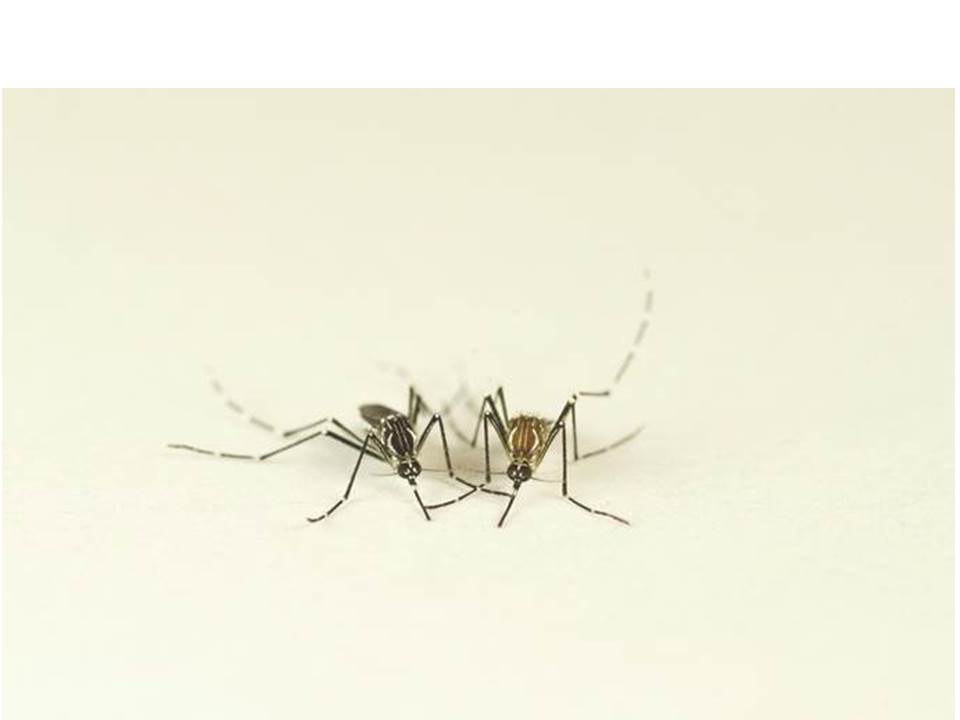Genes to Genomes asked Dr. Carolyn (Lindy) McBride (Princeton University), a recipient of the Rosalind Franklin Award for Young Investigators, to tell us about her research and what it means to receive the award. She was recognized for her Rosalind Franklin Award along with another recipient, Dr. Maria Barna, at the 2015 American Society of Human Genetics meeting in October.
It was a surprise and honor to receive the Rosalind Franklin Young Investigator Award. I’m lucky enough to have been surrounded by female scientist role models since I was young, including my great-aunt, a chemist (now 98 years old), my physician-scientist mother, and my postdoc mentor Leslie Vosshall. But I know that this is not true for all young girls aspiring to be scientists today and that real barriers for women in science still exist. For this reason, I think it’s important to recognize the work of women scientists.
In my new laboratory at Princeton University, we take advantage of recent evolution in the dengue fever mosquito Aedes aegypti to understand how genes control behavior. I first became interested in this mosquito at the end of graduate school when a friend introduced me to a fascinating series of studies from the mid-1900s. Researchers investigating the outbreak of an unknown illness along the coast of East Africa in 1952 discovered homes infested by a ‘domestic’ form of Ae. aegypti . An ancestral ‘forest’ form was later found breeding in forests, just hundreds of meters away. The two forms were closely related and fully interfertile in the laboratory, yet remained distinct in the wild and showed striking divergence in behavior: Domestic females specialized in biting humans, readily entering homes, flying toward human odor, and laying their eggs in water-storage containers indoors. Forest females avoided homes, preferred the odor of non-human animals, and laid their eggs in tree holes outdoors. These behavioral differences translated into marked divergence in the capacity to spread human diseases, such as Chikungunya, the unknown illness from 1952, as well as yellow fever and dengue.
When first introduced to this literature, I was trained in evolutionary genetics but had become keenly interested in functional genetics and wanted to use evolution to make basic links between genes and behavior. This struck me as an excellent system in which to do that. Clearly the genomes of forest and domestic mosquitoes must contain key differences at loci that regulate host seeking, habitat preference, and oviposition, among other behaviors. We could try to map those differences and study how they alter the activity and/or structure of neural circuits. In a sense, instead of carrying out a traditional genetic screen, we let evolution perform the screen for us – sifting through hundreds of thousands of mutations over evolutionary time to find those that tweak behavior in an advantageous way. Moreover, in addition to providing basic insight in behavioral genetics, we might learn something that could help prevent domestic mosquitoes from spreading disease to humans.
I decided to give this approach a try as a postdoc with Leslie Vosshall at the Rockefeller University. Leslie was just starting to move from Drosophila research to mosquito research, and we decided that I would travel to East Africa to see if domestic and forest forms still coexisted there. I had previously spent a year studying birdsong in Tanzania, just across the border from Kenya, so this plan was not as far-fetched as it seems. We also had collaborators at the Kenya Medical Research Institute. We found that the two forms did still coexist and we were able to bring them into the lab, confirm divergence in preference for human versus animal odor, and characterize an odorant receptor that contributes to this difference. Remarkably, this receptor, AaegOr4, recognizes a component of human odor and both the gene expression level and protein binding ability of natural variants of AaegOr4 are correlated with preference.
In my own lab at Princeton, we are now working to understand exactly how the changes in AaegOr4 affect signaling and integration in central olfactory circuits to alter preference. We are also characterizing additional genes expressed in the antennae and brain which are linked to preference, and plan to investigate the molecular basis of some of the other fascinating behaviors that help domestic mosquitoes exploit human hosts and habitats. We hope to uncover novel genes, novel functions for known genes, and a more complete understanding of how genetic changes confer new properties to neural circuits underlying behavior.
We are grateful for the recognition and support that come with the Rosalind Franklin Award and will use it as inspiration to keep moving forward in the footsteps of the outstanding scientists, who happen to be women, who have preceded us.
Dr. McBride received her bachelor’s degree in biology from Williams College and her PhD in population biology from University of California, Davis. As a postdoc at Rockefeller University, Dr. McBride was instrumental in establishing the mosquito as a model system to understand the genetic basis of behavior. Dr. McBride’s current research demonstrates how genes control recently evolved behaviors that contribute to the spread of human disease by mosquitoes.
The views expressed in guest posts are those of the author and are not necessarily endorsed by the Genetics Society of America.
































